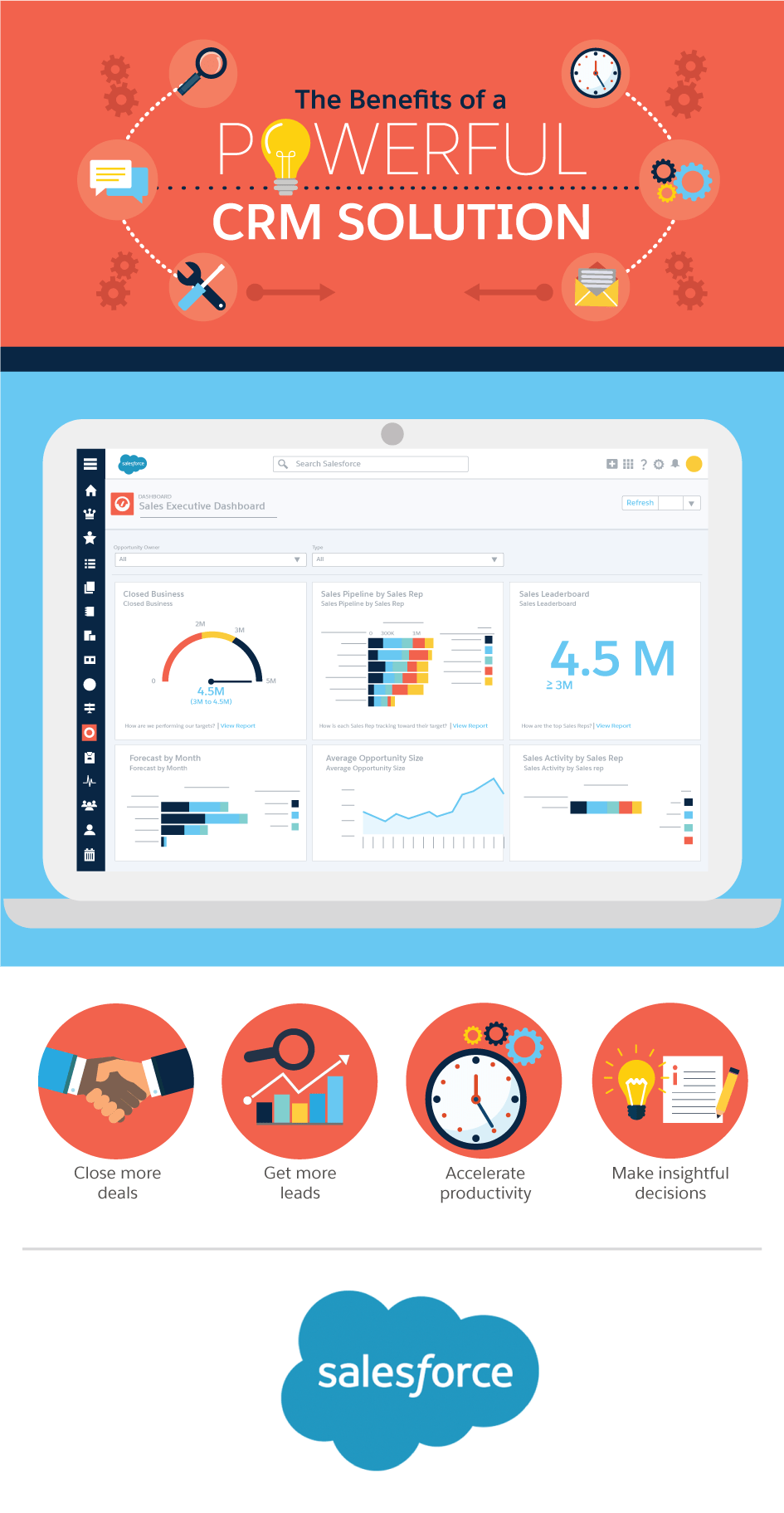
As a sales leader, you understand the numerous ways in which a value-added customer relationship management, or CRM, solution can transform your unit. Companies who incorporate CRM systems have been shown to communicate more effectively with customers and deliver a better overall customer experience. Customer relationship management can also increase customer retention rates.
These benefits are obviously attractive, but it can still be difficult to convince your sales reps of this value. Some sales professionals may be reluctant to turn to new technology, whether it’s because they’re afraid they won’t know how to use it properly, don’t understand what’s expected of them, or believe their process doesn’t need to be improved.
Create an open dialogue surrounding needs, goals, responsibilities, and expectations
When it comes to the implementation of a CRM solution, any conflicts between managers and sales teams are typically simple in nature. From a leader’s perspective, you are looking for a solution that will enable you to serve your customers more effectively, improve performance metrics, and enable your salespeople to fulfill their potential. A sales rep fears that significant changes will make it harder for them to do their jobs, and that they will be held accountable for expectations that aren’t made explicitly clear.
Good communication is the key to bridging this gap. As soon as you and the executive team have decided to search for a CRM solution, be up front with your sales team about the specifics of the situation. Give them concrete reasons why the company is making this decision, outline what leaders expect to gain from the implementation, and detail how it will affect them.
The Benefits of a Powerful CRM Solution
- Close more deals
- Get more leads
- Accelerate productivity
- Make insightful decisions

Choose a platform that will help your team succeed
The most significant factor in how successful your sales team will be with your new CRM software actually has nothing to do with how well you present it; it’s the capabilities of the solution itself. If you put in the time and effort to search for and demand a CRM platform that matches with your company’s needs, strengths, and weaknesses, then you’re already halfway to your goal.
The alternative is to hand your employees a platform that doesn’t align with your business needs, runs counter to your organization’s specific attributes, and forces them to completely upend their routines for the sake of conforming. This will only lead to consistent frustration, which will in turn produce lower levels of employee engagement and satisfaction.
Allow ample time for training, implementation, and ramp-up
When deploying a CRM solution, the best way to empower your sales team is to prove you are committed to them achieving success with the system. It’s the same principle involved when a B2B salesperson demonstrates to a client that they will do anything to ensure that the client receives as much value as possible from the product.
So how do you accomplish this? Ideally, you put measures in place to ensure that everyone involved in the implementation process has enough time to prepare. You’re not looking to throw a stop-gap solution into place; you need a platform that will scale appropriately with your growth plans and become more integrated into your operations as time passes. Of course, this requires providing your sales associates with the proper training before they are expected to take the reins of the CRM platform. However, it’s also important to remember that even after the training sessions have been completed, there will still be a learning curve as your reps become increasingly comfortable with the solution.
Sell the solution’s value
There’s ample evidence to suggest that selling a product primarily by features is not an effective way to engage a prospect. When your sales reps make contact, they don’t pique the client’s interest by listing off all the things that are great about your product. Instead, they get right to the heart of the matter and explain why this product will be valuable to them and what kinds of aspirations are possible through the lens of a partnership.
Presenting your CRM solution to your sales team is simply another version of the sales process, which means you must adhere to the same principles if you hope to have reliable success. Start by telling your team members exactly how this new solution will allow them to engage more easily with their customers, which in turn will lead to performance bonuses and work accolades.
Create an organized, systematic process for feedback
Feedback is a crucial component of any change in organizational processes. If your sales associates feel they don’t have a voice in the experience, they’ll be less likely to make a commitment to using the platform to the fullest extent. It’s not enough to issue a blanket statement declaring that your employees are welcome to voice their opinions about the process. You have to develop and initiate structured opportunities for feedback so that everyone understands that the results will be taken seriously.
Encourage your team members to take detailed notes during training and user sessions, and ask them to be as specific as possible when relaying their experiences. Then you can use the information from these feedback sessions to work with other internal departments, as well as your CRM vendor, to enhance the process for everyone.
For more on customer relationship management, and how a solution from Salesforce will help your sales team, read our eBook, “Your Complete CRM Handbook.”



